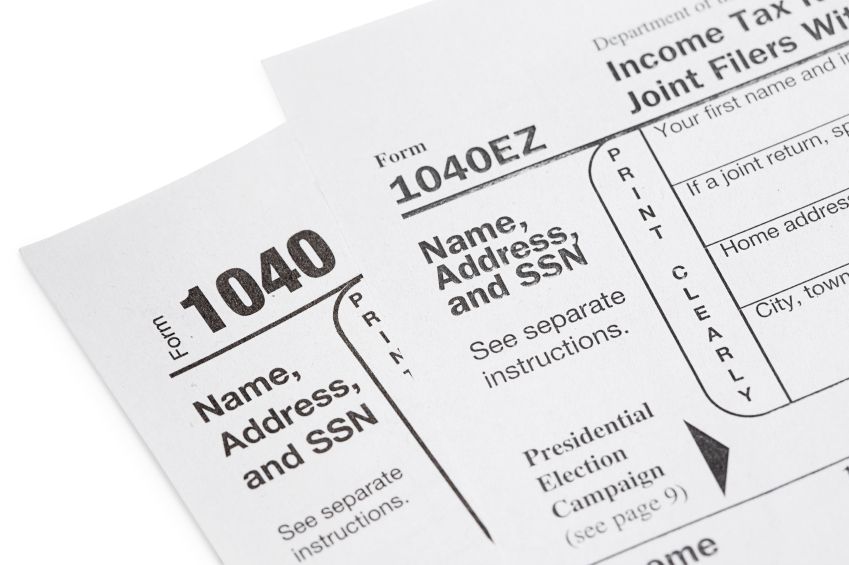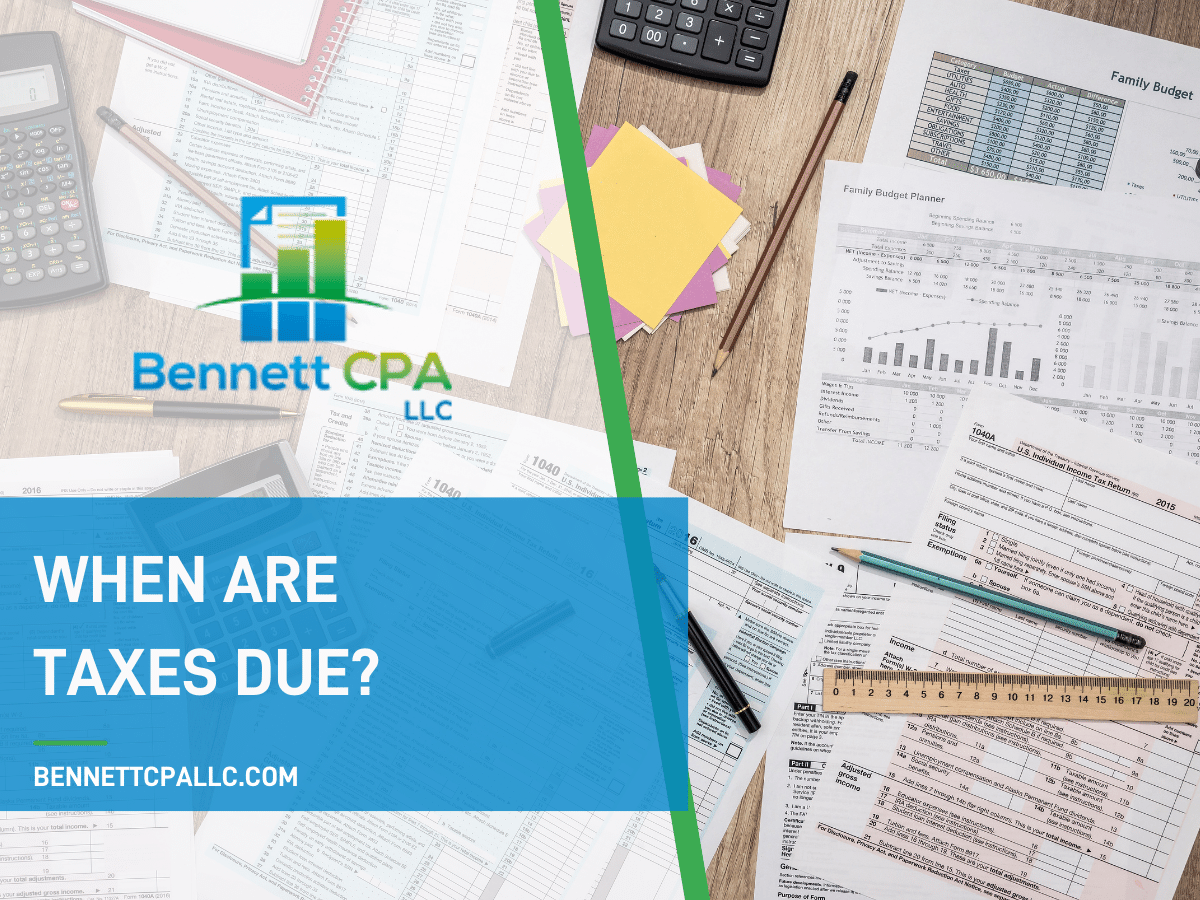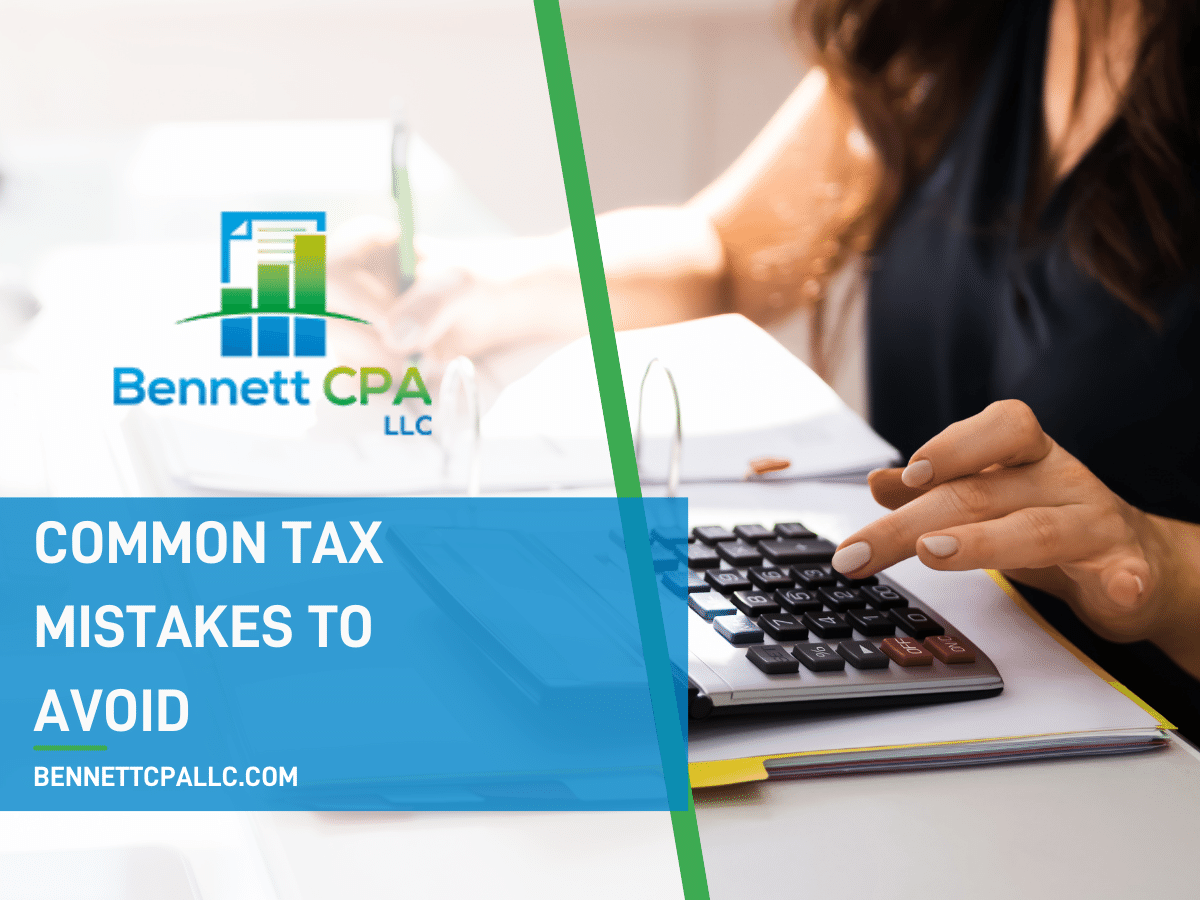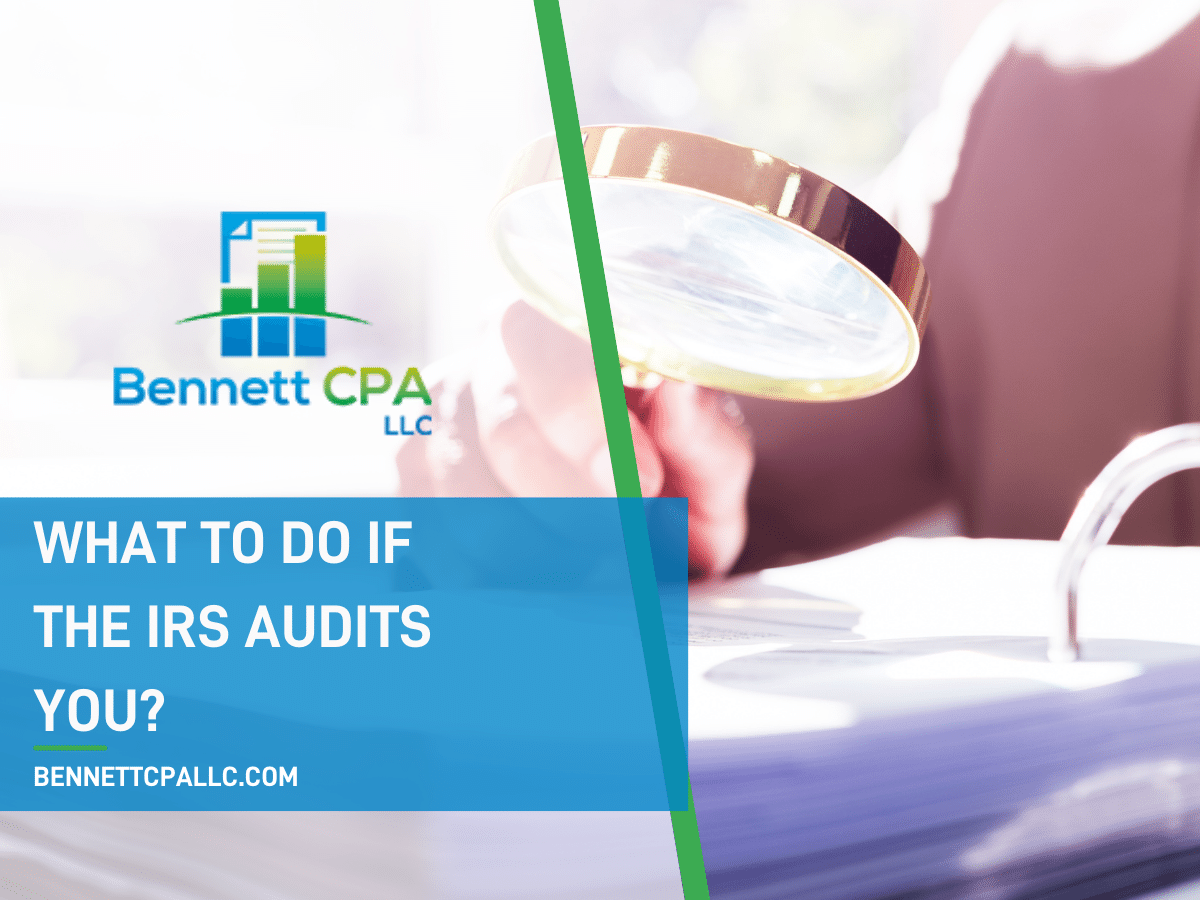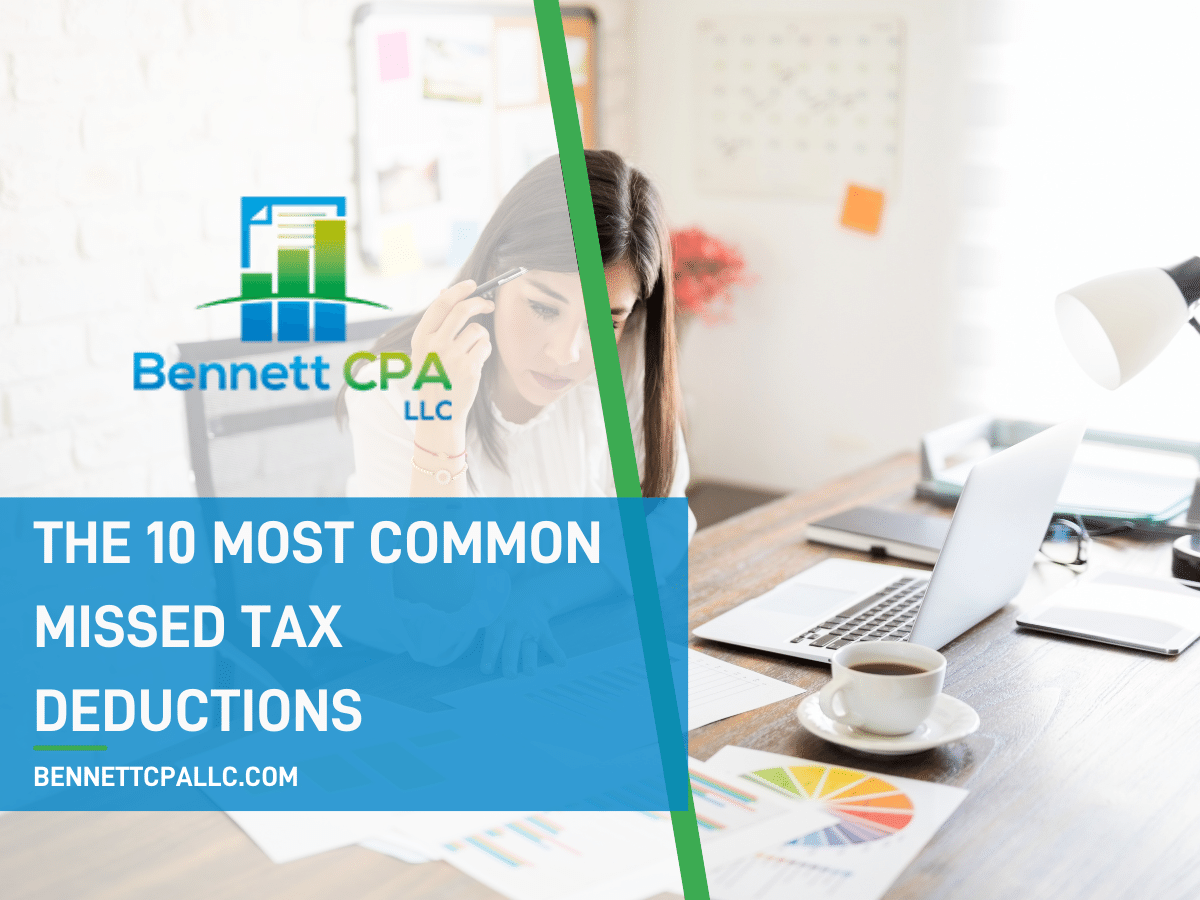The IRS has started to accept and process 2021 tax returns as of January 24th, 2022, for individual tax return filers. If the thought of filing your taxes leaves you feeling uneasy and stressed, do not worry because many other people feel the same way. Tax season is a stressful time for many people. Taxes can often be complicated and time consuming, but you do not have to struggle through your tax return alone.
At Bennett CPA, Merrill Bennett is on a mission to provide affordable, accessible, and quality tax services to individuals and small to medium-sized businesses across southern Colorado. With years of experience as a certified public accountant, Bennett understands how frustrating it can be to file taxes. His goal is to alleviate the confusion, the struggle, and the doubt surrounding tax season. This is why Bennett CPA has put together a list of important tax information for the 2022 tax filing season, including important deadlines so you file your taxes on time.
Tax Deadlines
The deadline for filing your 2021 taxes is April 18, 2022. This is the due date for filing individual tax returns and making tax payments. If you have not filed for an extension, you have to e-file or postmark your individual tax returns by midnight in your timezone on April 18th. If you are considering filing a tax extension form for your 2021 taxes, the extension form is also due by the April 18, 2022, deadline.
If you are self-employed or have income that requires you to pay estimated taxes quarterly, the April 18, 2022, tax deadline is also the due date for your Form 1040-ES. You will want to make sure your tax form is postmarked by the tax deadline.
You will also want to make sure you have funded your retirement account for 2021 by April 18, 2022. This is the deadline for contributions to a traditional IRA and Roth IRA. If you have a Keogh plan, Simplified Employee Pension (SEP), or another retirement plan, and you have a filing extension, you can wait until October 17, 2022, to put 2021 funds into these retirement accounts.
Do I have to file taxes?
Whether or not you have to file 2021 taxes in the 2022 tax filing season depends on a multitude of factors. Your income, tax filing status, age, and other considerations, such as if you are claimed as a tax dependent or not, impact whether you must file taxes. Even if you are not required to file taxes by the Internal Revenue Service (IRS), you could still qualify for a tax break and refund, so you may want to consider filing anyway. Here are some considerations to have in mind if you are unsure if you should file taxes:
- Your paychecks had income tax withheld from them.
- You made estimated tax payments or had last year’s refund applied to this year’s estimated taxes.
- You qualify for tax credits.
How do I file taxes?
There are numerous ways to file your federal tax return. First, tax filers can prepare an IRS Form 1040 or Form 1040-SR by hand and mail it to the IRS. However, this way of filing your taxes is not recommended because the IRS can take a long time to process your tax return. Second, tax filers can use software to e-file their taxes online. This method of filing taxes is a lot faster for taxpayers and immediately informs you if you owe money to the IRS or are eligible for a refund. The last way to file a tax return is to use the services of a tax preparer. A tax preparer will be able to file your tax return so you do not have to worry about doing it on your own.
What if I miss the tax deadline?
If you miss your tax deadline, you have some options. However, these options are dependent on whether you owe money to the IRS or are eligible for a refund.
What if I miss the tax deadline and owe taxes?
If you miss the tax filing due date and you owe the IRS money, you need to file your tax return as soon as possible. By missing your tax deadline, your individual tax return is delinquent, so the IRS can charge you penalties and interest until your tax return is filed and your balance is paid.
What if I miss the tax deadline and have a refund?
When you miss the tax return deadline and you are receiving a refund from the IRS, there is usually no penalty for your late return. However, all late returns should be filed as soon as possible. You have roughly three years from the tax return deadline to claim your refund. After three years, unclaimed tax refunds normally become the property of the U.S. Department of the Treasury.
Important 2022 Tax Deadlines:
It can be challenging to try to keep track of important tax deadlines and dates set by the IRS. Here are important tax deadlines to be aware of as you work toward filing your 2021 taxes this year:
- January 15, 2022This is the date when estimated tax payments for the fourth quarter of 2021 are due. If you are self-employed or have additional income in the fourth quarter of 2021, you are required to pay quarterly estimated taxes. You will want to make sure your estimated taxes are postmarked by January 15, 2022.
- April 18, 2022If you are self-employed or have income that requires you to pay quarterly estimated taxes, your Form 1040-ES must be postmarked by April 18, 2022.Individual taxes are also due by this date. For individuals who have not filed for a tax extension, e-file or postmark your individual tax return by April 18, 2022. If you are interested in applying for an extension, you must request an extension by this date.April 18, 2022, is the last day to make a 2021 IRA contribution. If you have not funded your retirement account for 2021, this is the due date to do so for traditional IRA and Roth IRA accounts. For those with a filing extension and a Keogh retirement plan, SEP plan, or another eligible retirement plan, you have until October 17, 2022, to put money into these retirement accounts.
- June 15, 2022June 15, 2022, is the due date for the 2022 second quarter estimated tax payments. If you have self-employment income or other income that requires you to pay estimated quarterly taxes, make sure you meet this due date.
- September 15, 2022By this date, you must pay for the third quarter of 2022 estimated tax payments. This is for self-employed individuals or those with additional income who are required to pay estimated taxes. These estimated tax payments must be postmarked by September 15, 2022, to be considered on time.
- October 17, 2022If you applied for a tax extension for your 2021 tax return, you have until October 17, 2022, to file. This means you need to e-file or postmark your individual tax return by October 17, 2022.
- January 15, 2023January 15, 2023, is the scheduled due date for the fourth quarter of 2022 estimated tax payments. If you are self-employed or need to report additional income that requires you to pay estimated quarterly taxes, you need to get them postmarked by the estimated due date.
Tax Preparation Services | Bennett CPA
Taxes can be an overwhelming and stressful process. For many of us, it is a time-consuming feat that leaves us feeling anxious and unsure. It can become difficult to remember all of the tax filing deadlines.
At Bennett CPA, Merrill Bennet takes the stress out of filing taxes. Bennett provides customized tax preparation services to file your taxes efficiently and accurately and bring you peace of mind. At Bennett CPA, the goal is to save you as much time and money as possible. It has never been easier to navigate the complexities of tax compliance than by working with Bennett CPA on your individual or business taxes. Bennett can provide you with comprehensive tax planning, preparation, and consulting services. Contact Bennett CPA today to set up an appointment and have all of your tax questions answered!
